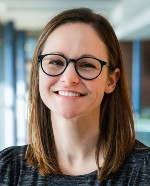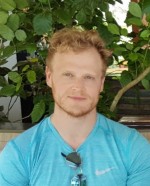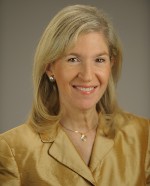|
In this Issue...
- A Message from the IBNS President-Elect, Dr. Jill McGaughy
- A Message from the IBNS Treasurer-Elect, Dr. Kim Gerecke
- A Message from the IBNS USA Councilor Elect, Dr. Janine Kwapis
- A Message from the IBNS European Councilor Elect, Professor Markus Fendt
- A Message from the IBNS Trainee Councilor Elect, Dr. Nicholas Everett
- Thoughts from IBNS Members
- Final thoughts from the Co-Editor-in-Chief, Dr. Donald L. McEachron
- Member Announcement from IBNS Fellow, Dr. Jacqueline Crawley
- Call for Guest Editors, IBNS Newsletter in 2021!
A Message from the IBNS President-Elect, Dr. Jill McGaughy

Dr. Jill McGaughy, IBNS President-Elect
Dr. Jill McGaughy is a Professor of Psychology and a Fellow of the Engagement and Faculty Development Office at the University of New Hampshire. Her research is aimed at understanding the neuromodulatory systems involved in attention and how early life insults disrupt development of these pathways. She is the President-Elect of IBNS.
Happy 2021! As we look forward to this year’s meeting in beautiful Puerto Vallarta Mexico, we are moving forward with caution and hope. We are grateful to the planning committee, chaired by Dr. Lisa Briand and co-chaired by Dr. Greg Carr, for organizing a wonderful program full of opportunities to share excellent science and strengthen our connections with colleagues. While we hope many of us will be able to gather in person, we understand that ambiguities and challenges remain that may limit in-person attendance. In recognition of this, we will be partnering with Meeting Pool to provide virtual access to the entire meeting to ensure excellent online opportunities and experiences for both presenters and participants. Registration fees will be available on our website for in-person or virtual attendance. In addition, we will be offering flexibility in switching your registration type if your plans change. We look forward to seeing you at the 2021 meeting to reconnect, share science and catch up with friends in IBNS.
Our work to improve inclusivity within IBNS continues. The Ethics and Diversity Committee will hold their first luncheon at the 2021 meeting. The goal is to introduce the committee and their efforts, present data on diversity within IBNS and discuss bias in academia. Our R13 funding proposal, aimed at providing travel funds and more opportunities for Diversity training, was scored! Members of the IBNS fundraising committee, Drs. Jared Young, Stacey Rizzo, Jill Silverman, and Debra Bangasser, worked diligently to craft a response to reviewers over the New Year break. We are still awaiting a final decision, but hope to hear soon that we will be able to increase funding to improve diversity and inclusivity within IBNS. Thanks to the committee and all those who worked behind the scenes on this funding proposal and the response to reviewers. We will continue to update you on progress.
In other news, I am working with Dr. Young and other IBNS leaders to provide opportunities for connections and training beyond the annual meeting. Though plans are still being finalized, we will soon be scheduling times to discuss new challenges, socialize, and learn from one another. These workshops will be aimed at addressing my goals of supporting faculty at all stages of career development and fostering international collaborations. We will update you on these workshops via the website and the newsletter.
Overall, IBNS has much to look forward to in 2021, with a great annual meeting that will include virtual access to increase the breadth and impact of our work across the scientific community. We will have new opportunities to connect virtually throughout the year to build on the strength of the IBNS community to support colleagues, enhance science, and address critical issues in the field of behavioral neuroscience. I look forward to connecting with you soon!
Back To Top
A Message from the IBNS Treasurer-Elect, Dr. Kim Gerecke

Dr. Kim Gerecke, IBNS Treasurer-Elect
Kim M. Gerecke, PhD is an Associate Professor, Department of Psychology and Neuroscience, Randolph-Macon College. When she’s not teaching the amazing students at RMC, or researching neural resiliency, she’s putting her work into practice by walking her dogs, hiking, and engaging in creative activities like knitting.
I first joined IBNS as a student member in my Master’s program in the mid 1990’s, and have been a regular member since becoming a faculty member in 2006. I have been a member, and the chair, of the Education and Training committee, I have served as the USA Councilor, Program Chair for the meeting in 2016, and on the Nominations and Awards Committee. And I am also an IBNS Fellow, thus, I have also been formally recognized for my significant contributions to the society.
All of which began because I was so impressed with the opportunities for professional development that we in IBNS offered to our early career trainees. It’s a welcoming, approachable society, and so many of my students have really enjoyed their experience presenting at our conferences. For 2021, I hope that we are able to continue to maintain the close professional, and personal, bonds cultivated through our meetings. This year will have our usual great lineup of speakers and symposium, and we have a solid plan to deliver that content to attendees, whether in person or online. It will be a challenge to replicate the warm, easy networking collegiality of IBNS online, but I am optimistic that our plans will help to deliver that aspect of our conferences, too. I also am optimistic that we will be able to weather the financial stresses of the pandemic, and emerge in 2022 healthy, and ready to meet in Glasgow! May 2021 be kind to us all.
Back To Top
A Message from the IBNS USA Councilor Elect, Dr. Janine Kwapis

Dr. Janine Kwapis, IBNS USA Councilor-Elect
Dr. Janine Kwapis is currently an Assistant Professor of Biology at Penn State University and has been a member of the IBNS council since the summer of 2020. Her lab studies the molecular and epigenetic basis of long-term memory formation, storage, and updating.
Hello IBNS! As we start a new year with a clean slate and hope for a brighter, easier year ahead, I wanted to share with you my own hopes for the future of IBNS. Your council is doing some great work and I’m delighted to be a part of this wonderful organization. IBNS is special to me, as it was the first conference where I was invited to co-chair a symposium as an independent researcher (thanks, Ryan LaLumiere!). IBNS has long encouraged this involvement of younger scientists, incentivizing the inclusion of early career researchers in the planning and chairing of symposia. More recently, we have begun to intentionally expand this inclusivity to more broadly involve scientists from underrepresented groups in the society. I recently joined the IBNS Ethics & Diversity committee and am extremely impressed by the progress they’ve made in two short years! In addition to establishing a Code of Conduct for the society (to foster a safe environment for all members by clarifying what qualifies as harassment and outlining how to report an incident), the E&D committee has established new diversity initiatives for travel awards and is in the process of applying for funding to help students from underrepresented groups attend the annual meeting. Dr. Bangasser, Chair of the E&D Committee, has also spearheaded an effort to collect and analyze data on the diversity makeup of the society at every level – from membership to leadership, awardees, and speakers within the society. This will give us a nice benchmark to measure future success against. Personally, I am excited to begin a collaboration with another group I’ve been involved in for the past decade, Women in Learning (WIL). WIL aims to promote and support women across behavioral neuroscience subfields, from hosting regional meet-and-greet happy hours to coordinating COVID-relief funding and even holding our first-ever “Where there’s a WIL there’s a way” research grant competition in 2020 to support the research of a female-identifying trainee from an underrepresented group. WIL is delighted to host its first-ever IBNS networking event at the 2021 meeting, so please keep an eye out for more details. I look forward to meeting you all (whether online or in-person) at the 2021 meeting in Puerto Vallarta!
Back To Top
A Message from the IBNS European Councilor Elect, Professor Markus Fendt

Prof. Markus Fendt, IBNS European Councilor Elect
Professor Fendt grew up in Tübingen, a small city in South-Germany famous for its old university (founded in 1477). After finishing high school, he stayed in Tübingen to study biology and in 1997, received his Ph.D. from the University of Tübingen. Since 2012, Prof. Fendt has served as group leader and adjunct professor at the Institute of Pharmacology and Toxicology, Medical Faculty, Otto-von- Guericke University Magdeburg, Germany. Currently, his group consists of two research assistants, four PhD students, six MD students and four master students.
It has been a long time since I read Pulitzer Prize-winning Laurie Garrett’s books “The Coming Plague: Newly Emerging Diseases in a World Out of Balance” and “Betrayal of Trust: The Collapse of Global Public Health”. I remember that I was deeply impressed by Garrett’s investigations but I also found her conclusions very pessimistic. About 20 years later, we are experiencing what I described as a “bleak picture of the future” in a recension I wrote for the German edition of “Betrayal of Trust” in 2001. Actually, SARS-CoV-2 really brought the “world out of balance”. So far, more than 2 million people died from COVID-19, many more were or still are seriously ill and will have long-lasting health consequences.
However, there is always a flip side. For example, people around the world realize how important science is. Those who trust in the recommendations of expert scientists do better in these difficult times so far. Furthermore, there is a reduction in global emissions during the pandemic forced confinements. And many people — enforced by pandemic-related restrictions — discover work-life balance and start to discover the surrounding nature, among others, since they move their sport from the gym to the outside.
For 2021 (and later), I wish that many of these flip sides are remembered and kept. As a scientist, I hope that people continue to realize how important science is and that governments around the world support science more in the future. As a nature lover, I hope that people realize that close nature can be just as fascinating as the one in the distance and they reduce emission-intense traveling. Inconsistently, as an IBNS member, I wish to be able to travel to the next IBNS meeting in Puerto Vallarta and meet the IBNS family there. And, as a European councilor for the IBNS, I wish that the preparations for the IBNS meeting 2022 in Glasgow have a great start. To all IBNS members, all the best for 2021!
Back To Top
A Message from the IBNS Trainee Councilor Elect, Dr. Nicholas Everett

Dr. Nicholas Everett, IBNS Trainee Councilor-Elect
During my PhD at Macquarie University (Australia) I investigated the neuropeptide oxytocin as a therapy for methamphetamine addiction, and the mechanisms underlying its therapeutic effects. Now at the University of Sydney and in partnership with a start-up pharmaceutical company, I am discovering the neural mechanisms which underpin the effects of a promising novel molecule for treating opioid use disorders, which is soon to be tested in Phase I clinical trials.
The first academic conference I ever attended was IBNS in Malahide (2013) as a guest attendee during my final undergraduate year. Without exaggeration, this was a major catalyst for my decision to pursue a research career. I vividly remember the exact plenary which flipped that switch. Since then, I’ve attended as many IBNS meetings as possible, including Budapest (2016), Hiroshima (2017), and Cairns (2019). From each of these meetings, I can point to specific data presentations, casual conversations at poster sessions or at social events, and moments of inspiration which have led to important milestones in my short career. I genuinely believe that I would not be in my current position if it not for these valuable experiences at IBNS, and I tell this to every student who will listen to me.
This introspection about what IBNS has given to me is what motivated me to nominate for the Trainee Councilor position, which is now enabling me to give back to the society. However, my goal is not to just repay my debt through administrative tasks, but to use the Trainee Councilor position to advocate for the interests of undergrads, PhDs, and ECRs who regularly attend IBNS; those who are striving to attend but perhaps cannot afford it; and those who have never even heard of IBNS, but that I know would benefit greatly by joining our society, and I know we would benefit from their contributions too.
By representing trainees on the IBNS Council and on the Ethics & Diversity Committee, I voice suggestions and use my vote to promote an agenda of recruiting increasing numbers of trainees from around the world. This is essential, as a truly international society we must continue to seek out trainee members from all backgrounds, specialties, and countries, to ensure that the next generation of IBNS scientists can collaborate to solve global scientific challenges for decades to come. Indeed, this past year of vaccine research has showcased the incredible impact of real international collaborations. With that in mind, and with the upcoming 2021 meeting offering a hybrid of in-person and online participation, I see this as a unique opportunity to attract trainees who may never have considered (or been able to) traveling internationally for science, which may present them with fruitful opportunities like it has for myself and many other IBNS trainees. I will continue to work towards this goal, and look forward to seeing everyone in-person or online in June!
Back To Top
Thoughts from IBNS Members
2020 was a most challenging year, but emphasized the importance of science, including neuroscience, as the pandemic appears to be increasing the incidence of some neurological and psychiatric disorders. 2021 sees us all have a wonderful opportunity to contribute to this next ‘decade of the brain’ as our neuroscience discoveries expand human knowledge of this most extraordinary of organs and contribute to the improvement of health and prosperity. Whilst the pandemic has exposed the dangers of encroachment of a growing human population on fragile global ecosystems, as well as the difficulties of changing human behavior via public health interventions, the development of multiple effective vaccines within a year demonstrates the tremendous power of science to deal with the many challenges (and opportunities) we will no doubt continue to face in the year, and decade, ahead.
Prof. Anthony J. Hannan
NHMRC Principal Research Fellow
Florey Institute of Neuroscience and Mental Health
University of Melbourne
Melbourne Brain Centre, at Genetics Lane, Royal Parade, Parkville
As always, I hope for the best, but plan for the worst. Sadly, I’m confident that 2021 will be as disruptive as 2020; however, we are far better equipped to manage the challenges thanks to 2020. I hope that more political leaders accept that their decisions need to be guided by science. Lastly, I hope to see my IBNS family in person!
Professor Stephen Kent, PhD
Dean & Head of School
School of Psychology and Public Health | La Trobe University | Melbourne (Bundoora), VIC 3086 Past-Chair, Heads of Departments and Schools of Psychology Australia (HODSPA) Past-President, International Behavioral Neuroscience Society (IBNS)
Because we became familiar with a variety of online tools, we'll live a convenient life.
Yasushi Kiyokawa Ph.D., D.V.M. Associate Professor
Laboratory of Veterinary Ethology,
The University of Tokyo
1-1-1 Yayoi, Bunkyo-ku, Tokyo 113-8657, Japan
My thoughts, I’d be hoping for much needed stability and security in all our lives this year.
Anand Gururajan, Ph.D. Research Fellow
School of Medical Sciences/Psychology
University of Sydney
Campertown, Australia
Back To Top
Final thoughts from the Co-Editor-in-Chief, Dr. Donald L. McEachron
 The past year has been a challenging one in which there was much disruption, isolation and loss. At my age, however, I can remember other years and other challenging times – the Cuban Missile crisis in 1962 when the world stood on the precipice of absolute destruction, the assassination of US President John F. Kennedy in 1963 and especially 1968 – a time of protests, sometimes violent, and a time of incalculable loss with the assassination of Robert Kennedy and devastating loss of Rev. Dr. Martin Luther King, Jr. I lived through those times and in the darkness, there was always light. I offer a few words from those times that reach out across the years: The past year has been a challenging one in which there was much disruption, isolation and loss. At my age, however, I can remember other years and other challenging times – the Cuban Missile crisis in 1962 when the world stood on the precipice of absolute destruction, the assassination of US President John F. Kennedy in 1963 and especially 1968 – a time of protests, sometimes violent, and a time of incalculable loss with the assassination of Robert Kennedy and devastating loss of Rev. Dr. Martin Luther King, Jr. I lived through those times and in the darkness, there was always light. I offer a few words from those times that reach out across the years:
Some men see things as they are and say why. I dream things that never were and say why not.
-Robert Kennedy
The ultimate measure of a man is not where he stands in moments of comfort and convenience, but where he stands at times of challenge and controversy.
We must use time creatively, in the knowledge that the time is always ripe to do right.
-Dr. Martin Luther King, Jr.
My brother need not be idealized or enlarged in death beyond what he was in life; to be remembered simply as a good and decent man, who saw wrong and tried to right it, saw suffering and tried to heal it, saw war and tried to stop it.
-Edward Kennedy Eulogy for his brother Robert
May we always dream, take the time to do what is right and help others to heal.
Back To Top
Member Announcement from IBNS Fellow Dr. Jacqueline Crawley
Database of Mouse Behavioral Scores

Dr. Jacqueline Crawley, IBNS Fellow
Jacqueline Crawley, Ph.D, is a member of the MIND Institute and Professor Emeritus in the Department of Psychiatry and Behavioral Sciences at the University of California Davis School of Medicine in Sacramento. Previously she was Chief of the Laboratory of Behavioral Neuroscience at the National Institute of Mental Health Intramural Research Program in Bethesda, Maryland. Dr. Crawley is an IBNS Fellow, IBNS past President, and author of the book What's Wrong With My Mouse? Behavioral Phenotyping of Transgenic and Knockout Mice.
A database of mouse behavioral scores has been compiled and is now available to the behavioral neuroscience community. This is an online compendium of test results from 12 behavioral assays. Results were obtained from a wide variety of control lines of mice, including wildtype littermates of mutant lines, vehicle treated controls from drug experiments, and inbred strains.
Data spreadsheets and graphs were assembled by Dr. Crawley’s team, with the permission of IDDRC investigators, from experiments conducted in the University of California Davis MIND Institute's Intellectual and Developmental Disabilities Research Center (IDDRC) Rodent Behavior Core in Sacramento. Findings reported in the spreadsheets are similar to standard scores reported by other behavioral neuroscience labs.
Here are the links to the MIND Institute's IDDRC Rodent Behavior Core webpage and to the 26 database files:
https://health.ucdavis.edu/mindinstitute/centers/intellectual-developmental-disabilities-research/cores/rodent-behavior.html
https://health.ucdavis.edu/mindinstitute/centers/intellectual-developmental-disabilities-research/cores/rbcdatabase.html
Consulting this database may be helpful when setting up a new assay or training a new lab member. For example, if scores obtained are considerably outside the expected range, protocols and training procedures could be modified where needed.
A major goal of the database is to increase rigor and reproducibility of mouse behavioral findings, consistent with the goals of IBNS.
The team hopes this compendium will be useful to your research program. Feel free to contact Dr. Crawley for further information, [email protected].
Back To Top
Call for Guest Editors, IBNS Newsletter in 2021!
We are calling for volunteers to act as guest editors for the IBNS Newsletter for the following months in 2021
March
May
July
September
November
Each Guest Editor is expected to provide the following:
Guest Editor Profile. Each guest editor provides a brief biographical sketch (300-500 words) and a head shot photograph to highlight the guest editor for the Newsletter
Recent Trends in Behavioral Neuroscience. These are brief summaries of recent exciting research activities in behavioral neuroscience. The number varies between 2-4 short reports (100-200 words plus citation) that the guest editor feels would be of general interest to the membership. An excellent source would be Neuroscience News - https://neurosciencenews.com/neuroscience-terms/behavioral-neuroscience/
IBNS News. Events related to the Society, announcements, travel awards, Annual Meeting issues, etc. (depends on availability – contact IBNS Main Office)
Member News. This section reports upon and highlights significant events in the lives of members of the IBNS. This is usually provided by the Central Office, but the Guest Editor may add any member news of which they are aware.
There are two subsections:
1) Significant Events and Milestones – this would include be named to prestigious professorships, promotions, tenure, etc.
2) Awards and Recognition – these include special types of recognition (best teacher, best young researcher, etc.) and funding for research activities, etc.
Diversity & Ethics Roundtable. Items from the Ethics and Diversity Committee, IBNS Officers or members involving issues of inclusiveness, diversity and/or research and/or educational integrity/ethics, (depends on availability – contact IBNS Central Office)
Other materials may include information on the Annual Meeting, travel information associated with the Annual Meeting (if applicable) and other news and information of interest to the IBNS membership.
Back To Top
|